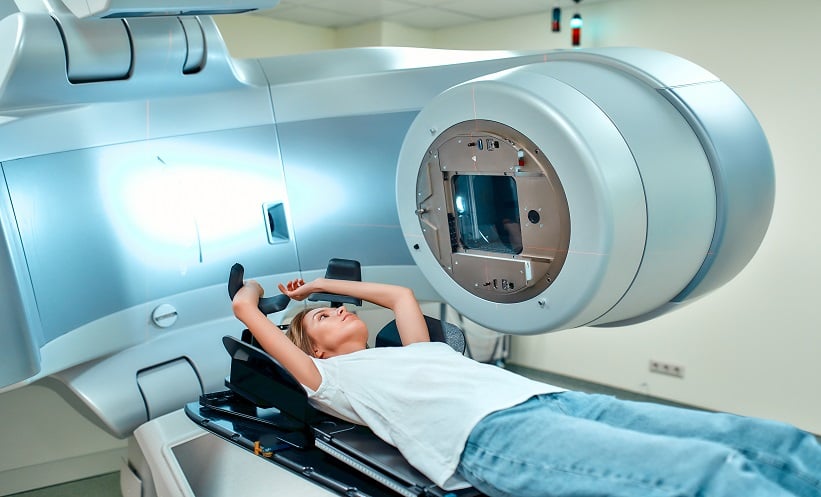DOES intensity-modulated radiotherapy (IMRT) improve long-term patient outcomes compared to 3-dimensional conformal radiotherapy (3D-CRT) for patients with unresectable locally advanced non–small cell lung cancer (NSCLC)? This question was the focal point for Stephen G. Chun and colleagues’ latest research at the University of Texas MD Anderson Cancer Center, Houston, USA.
NCSLC is the most common type of lung cancer, with common therapy options including surgery, chemotherapy, radiation therapy and immunotherapy. Both 3D-CRT and IMRT are radiotherapy techniques used to destroy tumours through targeted radiation, however the precise delivery of each method differs. For example, in 3D-CRT, the radiation dose in each beam remains uniform whilst this varies in IMRT. As a result, IMRT is generally considered more complex and costly, but allows for greater precision and minimised potential side effects.
Chun et al, recently conducted a prospective trial analysing the long-term effects of different radiotherapy techniques, namely IMRT and 3D-CRT, for NSCLC. Analysis of the prospective phase 3 randomised clinical trial NRC-Oncology-RTOG 0617, was performed. This trial was comprised of 483 participants receiving chemotherapy (3D-CRT vs IMRT) for locally advanced NSCLC. Several factors were analysed, including overall survival (OS), progression-free survival (PFS), time to local failure, development to second cancers, and severe grade 3 or higher adverse events (AE).
Of the 483 patients (median [IQR] age, 64 [57-70] years; 194 [40.2%] female), 228 (47.2%) received IMRT, and 255 (52.8%) received 3D-CRT (median [IQR] follow-up, 5.2 [4.8-6.0] years). IMRT was associated with a 2-fold reduction in grade 3 or higher pneumonitis adverse events compared with 3D-CRT (8 [3.5%] vs 21 [8.2%]; P =0.03). Moreover, patients had better five-year overall survival rates for IMRT (30.8%) compared to 3D-CRT (26.6%), as well as progression-free survival rates (16.5% vs. 14.6%). These findings support the standard use of IMRT for locally advanced NSCLC.
Helena Bradbury, EMJ
Reference
Chun SG et al. Long-Term Prospective Outcomes of Intensity Modulated Radiotherapy for Locally Advanced Lung CancerA Secondary Analysis of a Randomized Clinical Trial. JAMA Oncology. 2024.








